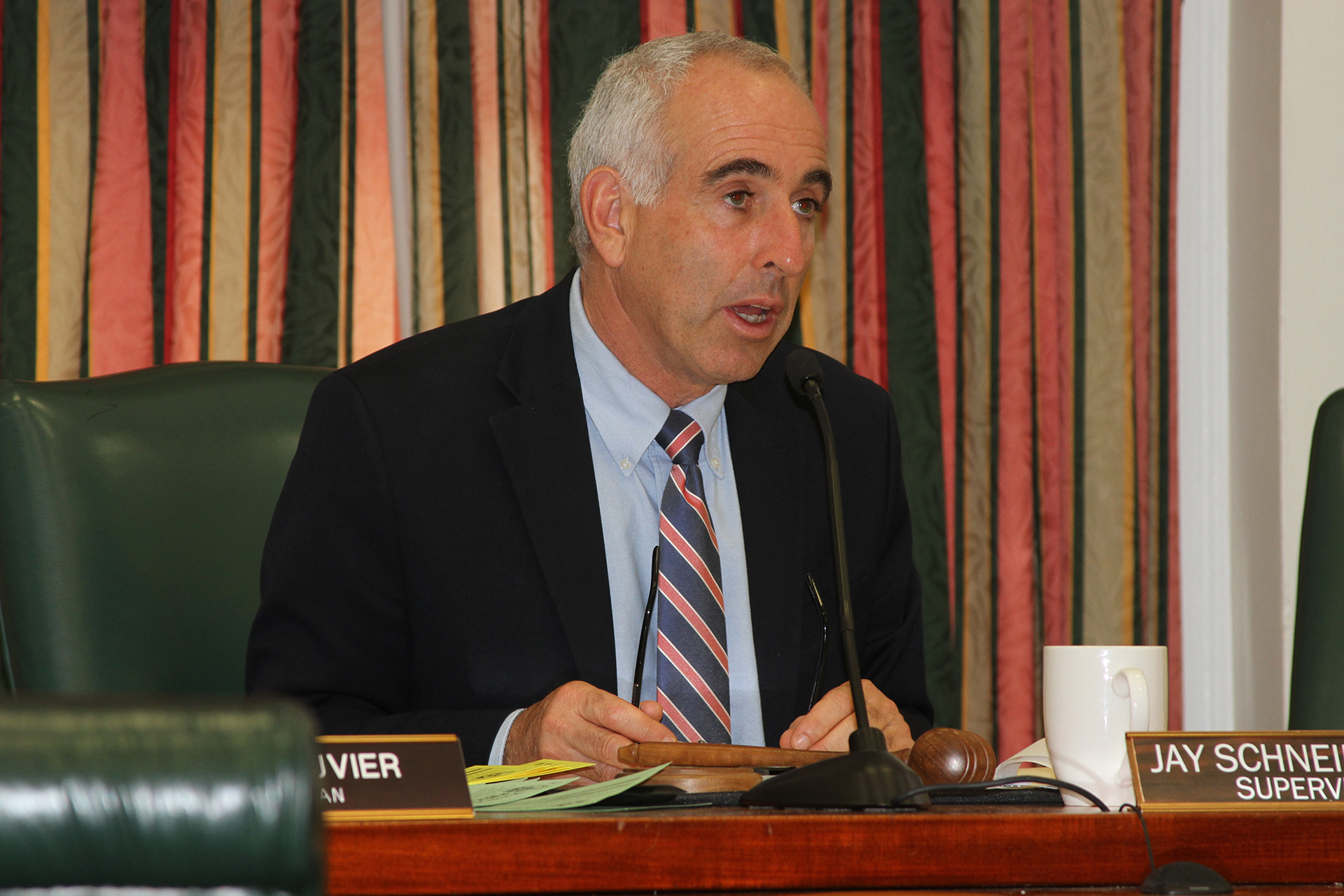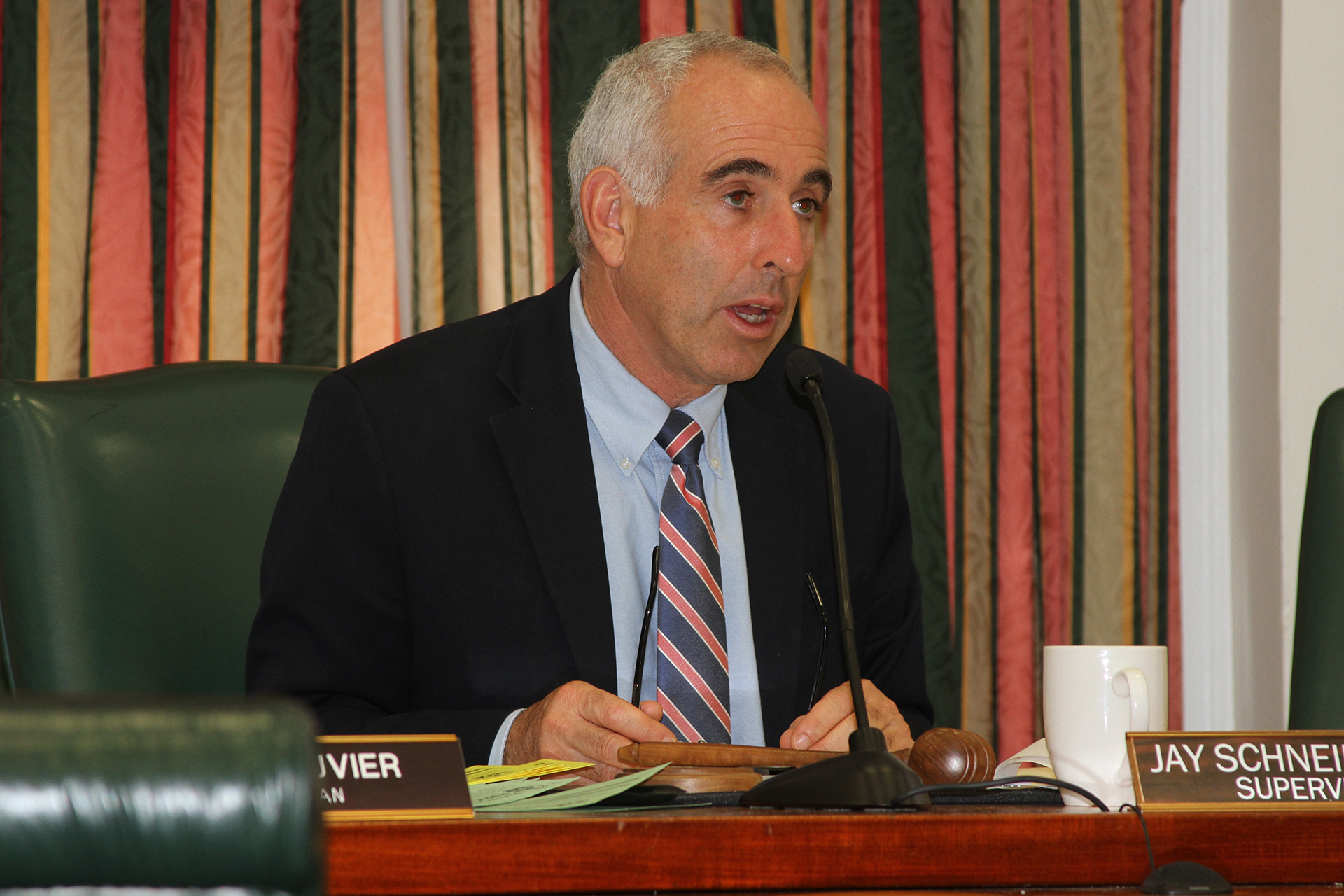Southampton To Rein In CACs


Just about every hamlet in Southampton Town has its own citizens advisory committee, with some playing a more active role in community affairs than others. On Thursday, November 1, the town board agreed to make some changes in the way they operate that the sponsor, Councilwoman Julie Lofstad, said “would make them more inclusive and representative of the community.”
“The way it has been now and in the past is a CAC group will meet to discuss something they feel strongly about and take a vote to support or not support a certain issue and send it to the town board or other appointed boards,” she said. “But there are a lot of people working two jobs, or they have to take the kids to soccer practice. Not everyone can attend the meetings. But if you did attend and you wanted to have your voice heard, you couldn’t because you’d be a guest and couldn’t vote,” Lofstad noted.
Starting with the new year, CACs will no longer be able to simply pass a resolution, voicing a thumbs down or thumbs up opinion. Instead, they must provide a public comment period and take detailed minutes, reflecting the opinions of all in attendance who weigh in on a given issue, and submit those minutes to the town board for it to review.
The board also agreed it would remind CACs that the purpose of the committees is to serve as links between the community and the town board and that they should limit their discussions to town board-related items, said assistant town attorney Richard Harris.
He said requiring these committees to provide minutes of their meetings that include the comments made by non-members would allow the groups to present a broader range of opinions that more accurately reflects the opinions of the community.
The new rules will clarify that elected officials are not allowed to serve on CACs to avoid potential conflicts of interest. The board will also request that committees send a list of potential new members or those seeking reappointment to the town board before the end of the calendar year. Committees will also be required to set up an annual meeting schedule at the beginning of the year and provide agendas to committee members at least 48 hours before a meeting.
Supervisor Jay Schneiderman in the past has been critical of some CACs for overstepping their bounds by holding candidate forums or even privately interviewing people running for town office. “They shouldn’t be involved in partisan politics. They should never be interviewing candidates,” he said. “They are supposed to be advising the town board, not discussing who should be on it.”
Councilman Tommy John Schiavoni said he was concerned about CACs taking formal positions for or against applications before the zoning board of appeals or the planning board. As a former member of the ZBA, he said there were times when an attorney would cite a CAC’s position or lack of one on an application as representative of the broader community’s position.
“As advisory boards, we felt they shouldn’t be doing that,” said Lofstad. She added that committee members have the right to support or oppose applications as individuals, just as any other member of the public would.
Deputy Supervisor Frank Zappone said in the past, town board members would meet informally with CAC chairs several times a year to receive their input. He volunteered to coordinate similar meetings in the future.
Lofstad said she wanted to finalize the rules and present them to the various committees before the end of the year.
sjkotz@indyeastend.com



